Yale Divinity School
Interview with Whitney Waller, 2nd Year Master of Divinity Student
 View and print as PDF.
View and print as PDF.
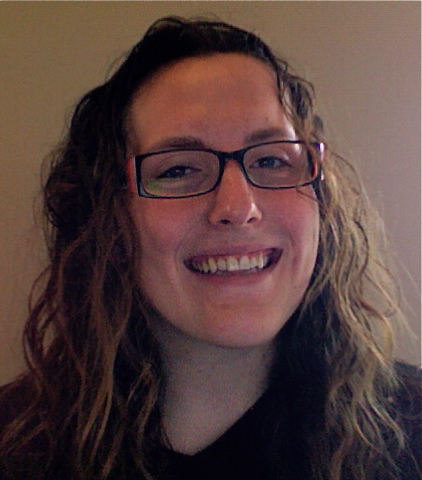
On April 20, 2012, I interviewed Whitney Waller, a second-year Master of Divinity student at Yale Divinity School (YDS), pursuing ordination with the Disciples of Christ. Whitney offers a sobering reflection on the challenges facing her and other students wishing to minister for justice: lack of time, contrary institutional priorities, the tension between urgent idealism and a reality of slow change, historical distrust between the community and the university, and the struggle simply to know how to balance myriad responsibilities while still caring for oneself. But despite these challenges, Whitney and her peers are remarkably hopeful. They are taking deliberate action, interwoven with their coursework, to answer God’s call. What keeps that hope alive? Ultimately, the answer seems fairly simple: each other.
What justice issues are of deepest concern to the students and staff of YDS?
Economic justice. Reproductive choice and women’s health. YDS is currently forefronting an agenda of racial inclusivity. We have had several town hall forums designed to create more intentional conversation about race and inclusivity on campus, born out of a newish inclusivity policy. There is also a lot of support and engagement around issues of sexuality and caring for the LGBTQ people in our community. Recently, the presence of both unisex and gendered bathrooms on the YDS campus has sparked debate. Some students object to the gendered bathrooms; others, to the unisex. For the former, the bathroom has become a place of violence, enforcing a binary. And that’s the tension of living in a space with so many different kinds of people and thought.
We are also negotiating town and gown issues. We want to step up community engagement, address economic disparity. Students recently formed the YDS Committee on Community Engagement, starting off with a day of service every semester, bringing out almost a hundred students each time. Community awareness was something I felt initially missing when I first arrived. I mean, just three blocks away from where some of us comfortably live is an area of town with disproportionate crime and poverty.
What other kinds of organizing are taking place on campus?
We have Seminarians for Reproductive Justice, just reinstated last year. I’m involved with it. We organize lectures, and we’re going to a rally for reproductive justice in Hartford next weekend. On the other side, but also from a justice perspective, YDS has a Right to Life group, trying to explore in a thoughtful and considerate way expanded justice issues of a commitment to life. Students are involved with community organizing. In fact, we just had a training.
Is there adequate support for your justice ministries?
Absolutely! We have justice-related courses and professors who care. Broad-based community organizing was an emphasis in a course I just took. I think we definitely have some pretty serious faculty and administrative allies. Our Dean of Students is great at this! I’m currently taking a course with Dr. Emilie Townes [Andrew W. Mellon Professor of African American Religion and Theology] called “Political Economy of Misery,” all about the making and unmaking of race, gender, sex, and class—and what this means for us in a daily way. Through dialogical notebooks, we reflect on readings and how they relate to us personally, what they’re driving us to think and do. For a final project, my group talked about a New Haven tourism initiative to collect and share residents’ stories, but how the stories were all coming from the same people of privilege, reinforcing dominant narratives. It was a marketing effort after all. So we decided to go on our own tour of New Haven, to listen to and report the other stories that don’t get told. Moreover, Kathryn Tanner is teaching “Christianity and Social Power.” Professor Diana Swancutt teaches a class called “Jesus, Paul, and Poverty”. And next year part of our practical ministry requirement will include a practicum on social justice ministry.
What challenges do you and your peers face when advocating on campus?
Not having justice happen fast enough is something we often rub up against at YDS. It’s really hard when you get hundreds of idealists together and then things don’t change immediately. So #1 challenge: idealism meeting reality. We’re also just busy. How do I prioritize? How do I do justice work but also make sure I don’t flunk out of school? We’re talking about burn-out and how real that is. We sometimes forget to take care of ourselves.
University-wise, there are times when the institutional priorities are not in line with the priorities of the justice-advocating students. The community engagement group has requested that Friday classes be canceled one time each semester so that all students can participate in the day of service. That has been met with a resounding no. Funding of course is another struggle.
The New Haven community in general has a distrust of Yale. We really need to be more intentional about first accepting and understanding that distrust. There is an astronomical number of charity groups on the books, started by students, but which fell apart and are now defunct because those students got busy, dashing the hopes of community members. This is a relationship we need to repair. You know, what happens when we buy up all the real estate and displace people?
What about the students? Do you face challenges with them as well?
A lot of students are translating their concern into ideas and action. The way we engage one another as a community is a testament to that. But it can be a problem trying to get people to events. But at the end of the day, people show up.
What motivates YDS students to commit their time and energy?
A lot of it has to do with the community we are creating. It’s relational. It’s one thing to have your inbox flooded with events that are going on. It’s another thing to be reached out personally, individually, in the context of friendship—letting people know that their presence matters. Faculty allies who encourage us also make a big difference. They tell us to make the most of our experiences outside the classroom right now. They emphasize praxis. And I like that, because sometimes you’re knee deep in Augustine’s Confessions and you just want to get out!
Let’s switch gears to you and your calling. What are your expectations and concerns for entering ministry?
I really feel my call is to parish ministry. Now that’s not what I would have told you a year and a half ago when I was thinking about hospital chaplaincy. But I’ve learned I need more stable communities, a space for longevity, where we create communities that are indebted to one another and to God. I would love to begin that journey as an associate pastor for faith formation. Growing up in the church, I experienced more prescriptive forms of charity rather than intentional justice partnering and engagement. We collected cans of food but we didn’t talk about hunger and its causes, or how these cans were not going to stop the hunger. Those deeper questions didn’t become important to me until working with an urban poverty organization in Louisville, KY. I want to extend that conversation to the church. To make these conversations possible, that’s what’s driving me right now.
I feel hopeful. And there’s anxiousness too. Anxious for the existence of the church. Is this a community where these ideas and actions are possible? But despite that anxiety, the hope wins out. Because I have known love through the communities I’ve been a part of. We can create communities that are more about justice-making than pew-filling. We can go outside our walls rather than build our walls higher. I just really think the church can do it. I have to remind myself it won’t happen tomorrow; it might be a longer journey than I realize. But one of my spiritual gifts is agitation…
Do you feel supported in your justice ministry by your denomination?
I definitely see my denomination [Disciples of Christ] as putting a high priority on justice. The difficulty is in knowing what that means. We are devoted first to unity, so we sometimes choose silence for the sake of that unity and avoiding controversy. We are so congregationally-centered that we are a denomination constantly seeking justice but always struggling to define justice in its particulars. Sometimes the denomination will not commit to particular forms of justice because that commitment would alienate some members of the body. But great things are also happening. LGBTQ ordination and rights are very important to me, and regions of the church are starting to stand up for this. I just want to know: When do we start making particular commitments?
As we wrap up this interview, is there any particular story or experience from your time at YDS that encapsulates for you the climate for social justice on your campus?
It happened in chapel. Emilie Townes delivered a sermon on the annunciation, explaining that she had always read the line, “through God, all will be possible,” as in the present tense, but actually, it is intentionally framed in the future tense. She said that this was essential for any who pursue justice to understand. She then entered this powerful litany: Racism will end. Classism will end. Sexism will end… Because with God, all will be possible. There is hope and assurance in this promise. We want justice right now, but it’s not going to happen right now. So right now, we partner with each other and with God. We work. We don’t give up. Because we have hope.
And what has kept that hope alive for you?
Well, what’s the alternative? It takes too much energy to be hopeless and powerless. And I don’t like feeling drained of my energy. Even if I feel sometimes a lack of hope, that questioning and doubt can reinforce me; it doesn’t have to make me give up, crawl into a ball. That is the story of God and her people: the constant effort of trying and not succeeding, but God always being there. So do we try again or do we give up?

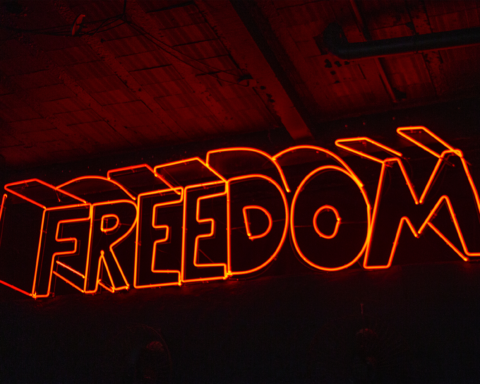

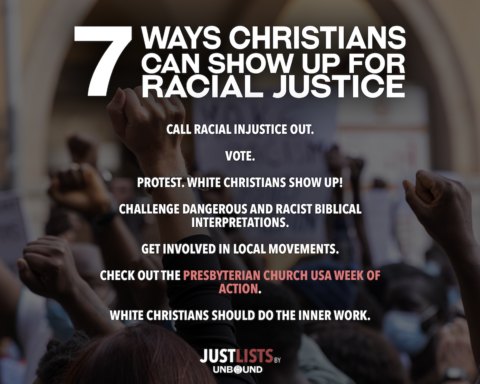
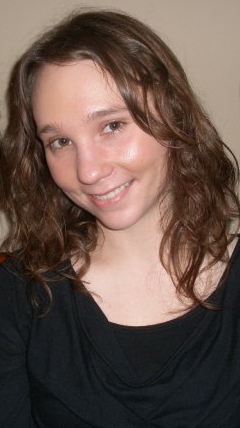
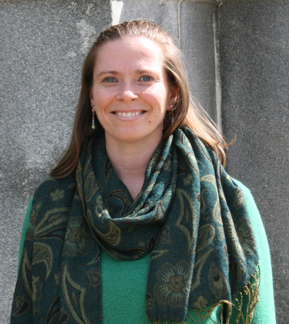
Unbound Social